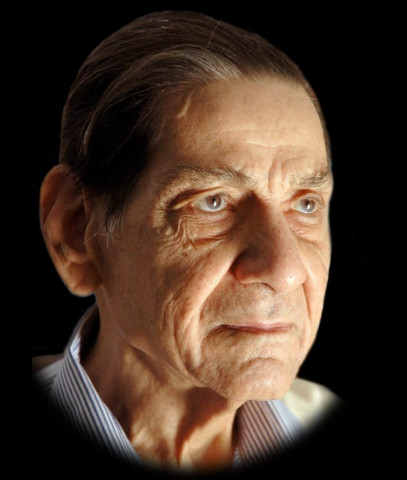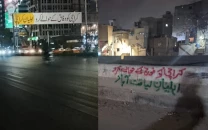In footsteps of Barna: Journalists should struggle for broader social change, says Minto
Politician, journalists pay tribute to Minhaj Barna.

Politician, journalists pay tribute to Minhaj Barna. PHOTO: MOHAMMAD ADEEL
He was speaking at a gathering to mark the third death anniversary of Minhaj Barna, an iconic journalist and trade union leader at the Pakistan Federal Union of Journalists’ (PFUJ) secretariat on Thursday.

Barna, who died in Islamabad on January 15, 2011, had served as PFUJ president during his career and had also founded the All-Pakistan Newspaper Employees Confederation (APNEC). He was most famous for his charismatic leadership and defiant struggle for press freedom during military dictatorships.
Barna was an “upright individual and a conscientious, principled journalist”, who not only organised journalists but also fought for the rights of non-journalist workers, Minto said.
He never used his leadership status and his movement for any personal gains, the AWP leader said.

“This is a quality of professionals that they are not exploitative,” he said. “If the professionals join the ranks of those who exploit, their professional character is destroyed.”
Minto said Barna’s life and struggle is an example for all working journalists. He said journalists cannot demand rights for themselves without strengthening trade unions, but they must not just stop at ensuring their own prosperity.
“Your journalistic skill is not a power unto itself. The power lies in the purposes for which you use it as an instrument,” Minto told the journalists in the audience. “Organisation is mandatory, but you need to use it to demand social change and be the torchbearers for the masses.”

Earlier, speakers including friends, followers, politicians and intellectuals paid homage to Barna’s services.
Recalling his days with Barna, Ali Ahmed Khan a former affiliate of the BBC and a veteran journalist, said that when he joined Barna in the democratic struggle for the rights of journalists and the general public in the sixties, Pakistan was reeling under the dictatorship of Ayub Khan and his cronies. He said they had continued their struggle during the second military martial law of Gen Yaha Khan and then under the tyranny of Gen Ziaul Haq, who brought bigotry and sectarianism to this country and exterminated democratic and humanistic values from Pakistan.
Senator Hasil Bizenjo said Barna’s struggle was not just journalistic but representative of an ideology. “Barna was not fighting for journalists’ salaries only, he was fighting for a pro-people society where there is justice and democracy,” Bizenjo said.
Journalist Raja Asghar, who had known Barna as a friend and worked with him, said no one inspired the trade union movement in Pakistan as much as Minhaj Barna. Asghar said working journalists in Pakistan need self-criticism and introspection to carry Barna’s legacy forward.
Former PFUJ secretary-general C.R. Shamsi said journalists need to represent the oppressed and impoverished people of Pakistan, just like Barna did in his time.
APNEC secretary-general Ikram Bukhari said Pakistani journalism boasts of a glorious past but there is very little discussion about its future. Bukhari said journalists need to get out of their factions and splits to unite and organise for press freedom.
The tributes, however, seemed ironic at a time when the PFUJ, which Barna and his peers sacrificed so much to sustain, is currently divided over a dispute on the results of the union’s most recent elections. The two groups that contested the elections have both consistently claimed they won the October 2013 elections.
Nevertheless, intellectual and writer Ashfaq Saleem Mirza said Barna is a symbol of resistance for Pakistani journalism. He said the vibrant media scene in Pakistan today owes a lot to people such as Barna who fought for press freedom in the darkest hours of the country’s history.
PFUJ President Afzal Butt announced to launch a countrywide movement for media persons rights.
Published in The Express Tribune, January 17th, 2014.


















COMMENTS
Comments are moderated and generally will be posted if they are on-topic and not abusive.
For more information, please see our Comments FAQ